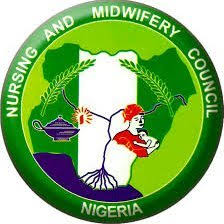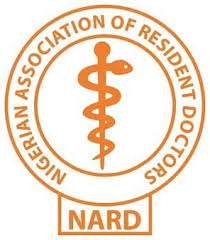COMMUNIQUÉ OF THE 5TH NIGERIA FAMILY PLANNING CONFERENCE (NFPC) HELD ON 4th TO 6TH DECEMBER 2018 AT THE SHERATON ABUJA HOTELS, ABUJA, FCT
Preamble The 5th Nigeria Family Planning biennial Conference with the theme: "Investments. Innovation, Inclusiveness" was organised from 4' to 6th December, 2018 at the Sheraton Abuja Hotels and Towers, by the Association for the Advancement of Family Planning (AAFP) in partnership with the Federal Ministry of Health and other stakeholders drawn from government ministries, departments and agencies (MDAs), the National Assembly, development partners, non-governmental organizations, civil society organizations, religious and traditional leaders, women and youths groups, the private sector and the media.
The Conference was preceded by pre-conference events with special focus on youth, women and faith-based entities. The pre-conference meetings were held on ri December 2018.
A total of 729 participants attended the conference itself, with additional participation from the global community through live-streaming and social media broadcast. Delegates also included representatives from the 36 states of the Federation, the Federal Capital Territory (FCT), as well asthe international community.
In addition to the Opening Ceremony, the conference featured: plenary sessions, parallel oral sessions, exhibition by partners and donors, poster presentations, information sharing, and skills buildingsessions.
Key Observations The Chairman of the Association for the Advancement of Family Planning and LOC chair, Dr Ejike Oji welcomed the Vice President of the Federal Republic of Nigeria, His Excellency, Prof. Yemi Osinbajo (SAN), GCON, who was ably represented by the Minister of Health, Prof. Isaac Adewole, and others to the conference. The Vice President, Prof. Yemi Osinbajo, ably represented by the Hon, Minister of Health, Professor Isaac Adewole, declared the conference open, and delivered a keynote address: The Pivotal Role of Family Planning in Accelerating the Prospects of Nigeria Achieving Demographic Dividends."
In his speech, he noted that "one of the main issues identified in our Demographic Dividend Roadmap is the need to invest in a nationwide family planning programme which eliminates the unmet need for modern contraception, puts a check on the current high-fertility rate, and helps achieve efficient population management. Investing in family planning has been proven to be smart, cost-effective, and life-saving; and is especially critical in a country like Nigeria with a young and rapidly growing population — keep in mind that an estimated 63% of the total population is below 25 years of age; with a significant segment of this population being sexually active, and needing education and guidance to wisely navigate the issues of sexuality and choice and contraception".
As traditional, the 5th Annual Population Lecture Series (APB) was held on 51' December 2018. Reviewing Family Planning in the wider context of the environment and development, the Chairman of the National
Population Commission, Eze Duruiheoma (SAN) gave the Welcome Address, while the Keynote Address was delivered by , Chief Awa Kalu, Esq. (SAN). The guest lecture was delivered by , Prof. Ayodele Atsenuwa who advocated the need to prioritise the health of Nigerians and noted key directions on the role of the law in driving access to family planning services.
Participants acknowledged the efforts of the Federal Government and some states for implementing the Task-Shifting/ Sharing Policy, and for increased funding of family planning programmes, while iterating that more needsto be done.
Key issues raised include the following:
• Access to health, including Family Planning is a right of women, girls, boys and men; Recent Smart Survey (mCPR 18%) and PMA 2020 (mCPR19%) data show some level of improvement if confirmed by the NDHS. This means that the country has made a remarkable progress of about 2 percentage point increase per year for the past two years. Despite the significant level of investments and interventions and increase in expected outcome, we need to accelerate gains to get on track to attain the modern contraceptive prevalence rate (mCPR) target of 27% by 2020 in view of persisting high fertility and maternal mortality rates, as well as the moderate unmet need four family planning;
• The participants recognised the youth bulge and the continued gaps in ensuring access to information and services for youths, poor involvement of young persons in family planning decisions and programming, and insufficient investments in youth programmes. Other challenges include the lack of Youth Focal Points and representatives on the state and National Reproductive Health Technical Working Groups and the Adolescent Health Technical Working Group;
• In spite of several efforts, there are recognisable gaps in programming to provide service to persons with disabilities and address compounded stereotypes;
• There are inadequate investments in family planning by government at all levels, inefficient resource utilisation of key basket funds with continuing gaps in the availability of budget lines and funding for adolescent health programmes at the national and especially at the sub- national levels.
Resolutions and Recommendations Based on the issues noted above, participants resolved as follows:
â–ª There is a need for government to match population growth with commensurate economic growth, and therefore, deliberately and proactively plan and work towards avoiding demographic doom but start reaping the gains of demographic dividends; â–ª With key pledges and continued contributions from all stakeholders, the effort towards achieving the 27% target of mCPR for all women must be deliberate; recognising Family Planning as a key intervention towards ending preventable maternal mortality and reaping demographic dividends;
• The conference reaffirms the role of people-centered good governance towards increased economic growth and increased delivery of quality health services;
• While recognising the increase in data visibility for family planning programming, there is a need however, to develop a strategic framework to drive improvements in data management as well as reduce discrepancies, so as to enhance quality decision making in the delivery of services;
• Recognising the pivotal role of the private sector, there is a need to deliberately improve synergy, coordinated networking and partnerships within the health sector, towards leveraging funding opportunities and innovatively delivering services to more women and girls;
• Recognising youths as partners in the design, implementation, monitoring and evaluation of programmes, a Youth Focal Desk should be established within the coordinating mechanism of the Association for the Advancement of Family Planning in order to improve the coordination of the affairs of youth and adolescent groups;
• Recognising the critical role, willingness and continued support of traditional and religious leaders, there is a need to continue to strengthen partnerships with leaders towards promoting active leadership in addressing cultural norms and myths on family planning and child birth spacing;
• Stakeholders must subject objectionable and obsolete policies and laws that limit rights to family planning and health of women and girls to judicial trials and pronouncements;
• Enabling laws for access to family planning and health should be reviewed, updated, disseminated, and enforced;
• The federal and state governments must commit additional funding to respond to the growing unmet need for family planning across the country, including expanding and developing health insurance schemes that include comprehensive family planning services;
• Participants stressed the importance of developing family planning programmes that are context-specific and evidence-based;
• There is a critical need to come up with innovative financing mechanisms to explore and access family planning-focused funding baskets including; the Global Financing Facility, the Basic Healthcare provision fund, state contributory health insurance schemes and the saving one million lives program for results
Consequently, participants restated that the journey must continue to harness and maximise investments and innovation towards more inclusive service delivery to women and girls
Dr Orji Ejike, Chairman, Local Organising Committee
ABUJA: Training Schedule for Basic Life Support BLS, Pediatric Advanced Life Support (PALS), Advanced Cardiovascular Life Support ACLS, First Aid, CPR, AED
PORTHARCOURT: Training Schedule for Basic Life Support BLS, Pediatric Advanced Life Support (PALS), Advanced Cardiovascular Life Support ACLS, First Aid, CPR, AED
LAGOS: Training Schedule for Basic Life Support BLS, Pediatric Advanced Life Support (PALS), Advanced Cardiovascular Life Support ACLS, First Aid, CPR, AED
STOP paying for airtime and electricity, Let your phone pay its bills with ScreenT




